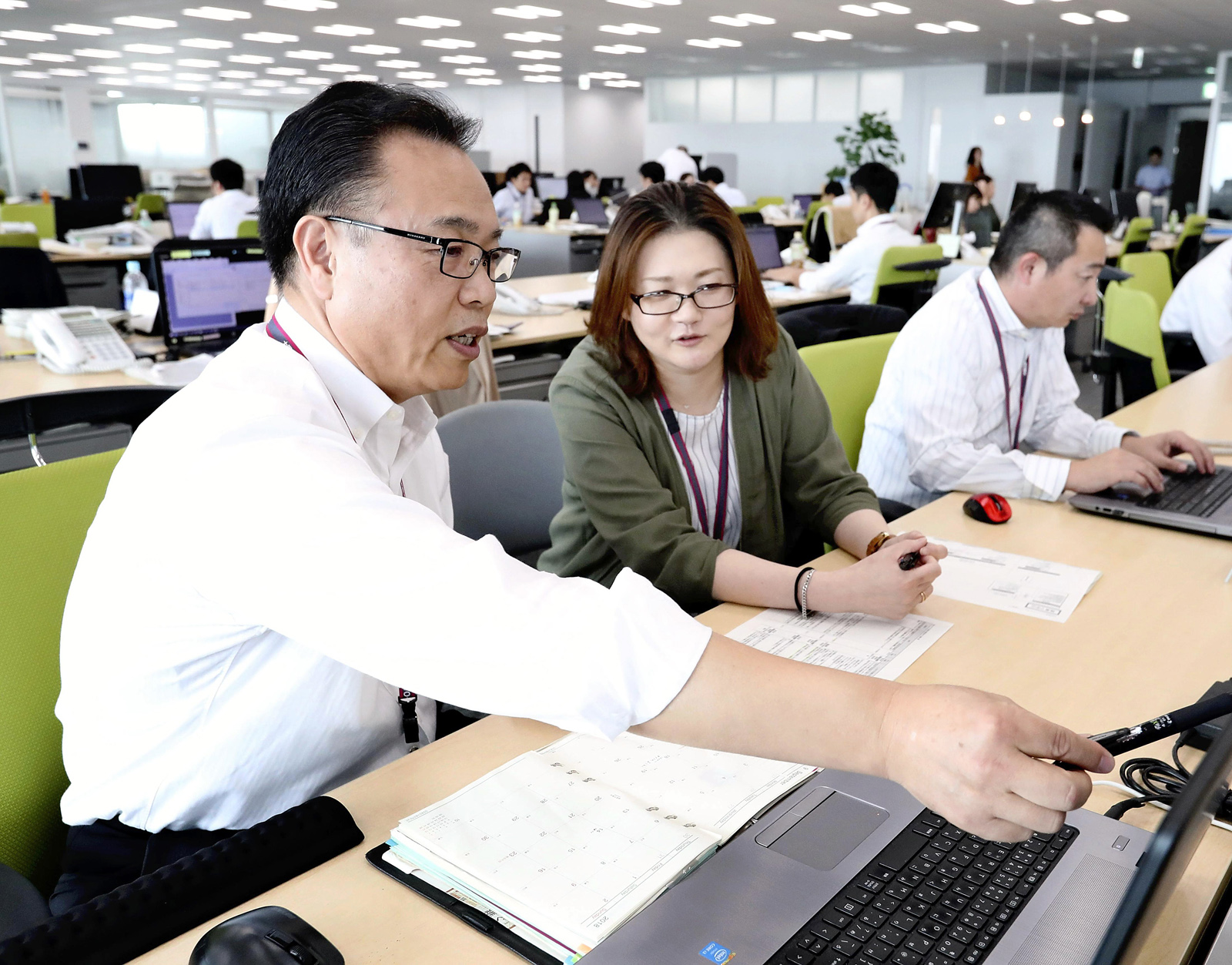70-year-olds key to Japan’s workforce

Yoshikatsu Yamaguchi, left, gives advice to a younger worker in their office in Tokyo. The Japan News/Asia News Network
TOKYO — The number of elderly people — aged 65 years or older — who held a job in 2017 reached a record high of 8.07 million, according to statistics compiled by the Internal Affairs and Communications Ministry.
As the nation’s labor shortage has become increasingly serious with the working-age population aged 15 to 64 falling below 60 percent of the entire population, the value of elderly people at work has increased.
Setting the goal of “an era of a 100-year lifespan,” the government plans to expedite efforts to improve the employment environment for the elderly. The key phrase is “70 years old.”
The government will begin full-fledged discussions as early as this autumn on a plan to raise a corporate employee’s mandatory retirement age from 65 to 70.
During his Liberal Democratic Party’s presidential campaign, Prime Minister Shinzo Abe has expressed his intention to have people choose an age to start receiving their pension benefits from “over 70 years old.”
Some companies are keeping ahead of the move by hiring workers aged up to 70.
In April last year, Taiyo Life Insurance Co., based in Tokyo, extended its mandatory retirement age from the current 60 to 65 and made it possible for employees to work as contract workers at their request until they turn 70.
Yoshikatsu Yamaguchi, who became the first person to benefit from this new system at the life insurer, was promoted to a section chief in charge of information technology development promotion, a higher position than what he had assumed until his retirement age, and continues to instruct younger people.
“I want to work until 70 if I’m physically capable,” Yamaguchi, 61, said.
Under the revised Stabilization of Employment of Elderly Persons Law that went into effect in 2013, companies are obliged to allow their employees to keep working until 65 at their request.
However, not many companies have actually taken this bold course of extending their retirement, which would lead to an increase in labor costs.
According to a Health, Labor and Welfare Ministry survey, only 17 percent of the companies surveyed said they had set a mandatory retirement age at 65 or older as of 2017.
Among them, 80 percent of the employees were rehired as contract workers or temp staff whose payment is lower than those of full-fledged employees in general.
On the other hand, elderly people are highly motivated to work. According to a Cabinet Office survey in 2015, 65 percent of the respondents aged 65 to 69 said they wanted to carry on working. If more people were hired until 70, it would promote a system to raise the pensionable age to over 70 at their request.
This is because the amount of monthly pension payment will become higher the later they choose to receive it. The current pensionable age is 65 in principle, but pensioners can choose to start receiving pensions at ages between 60 and 70 in accordance with their wish.
Yumiko Murakami, head of the Tokyo Center of the Organization for Economic Cooperation and Development (OECD), said: “Japanese middle-aged and elderly people have a high level of competency in the world. It’s important to change the concept of ‘equal result for all,’ which is representative of days of lifetime employment, to ‘equal opportunity for all’ and create an environment in which people can work in accordance with their abilities.”